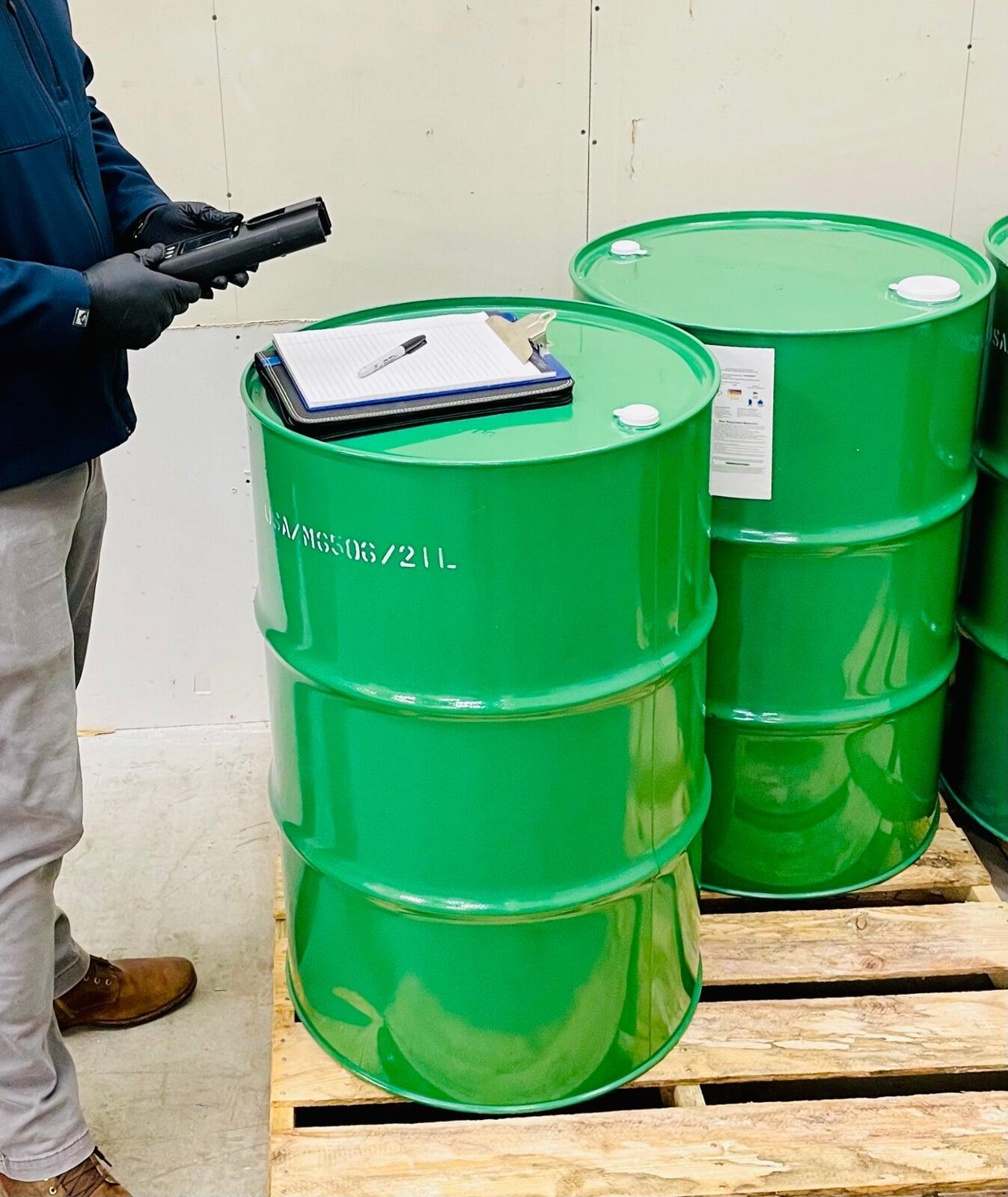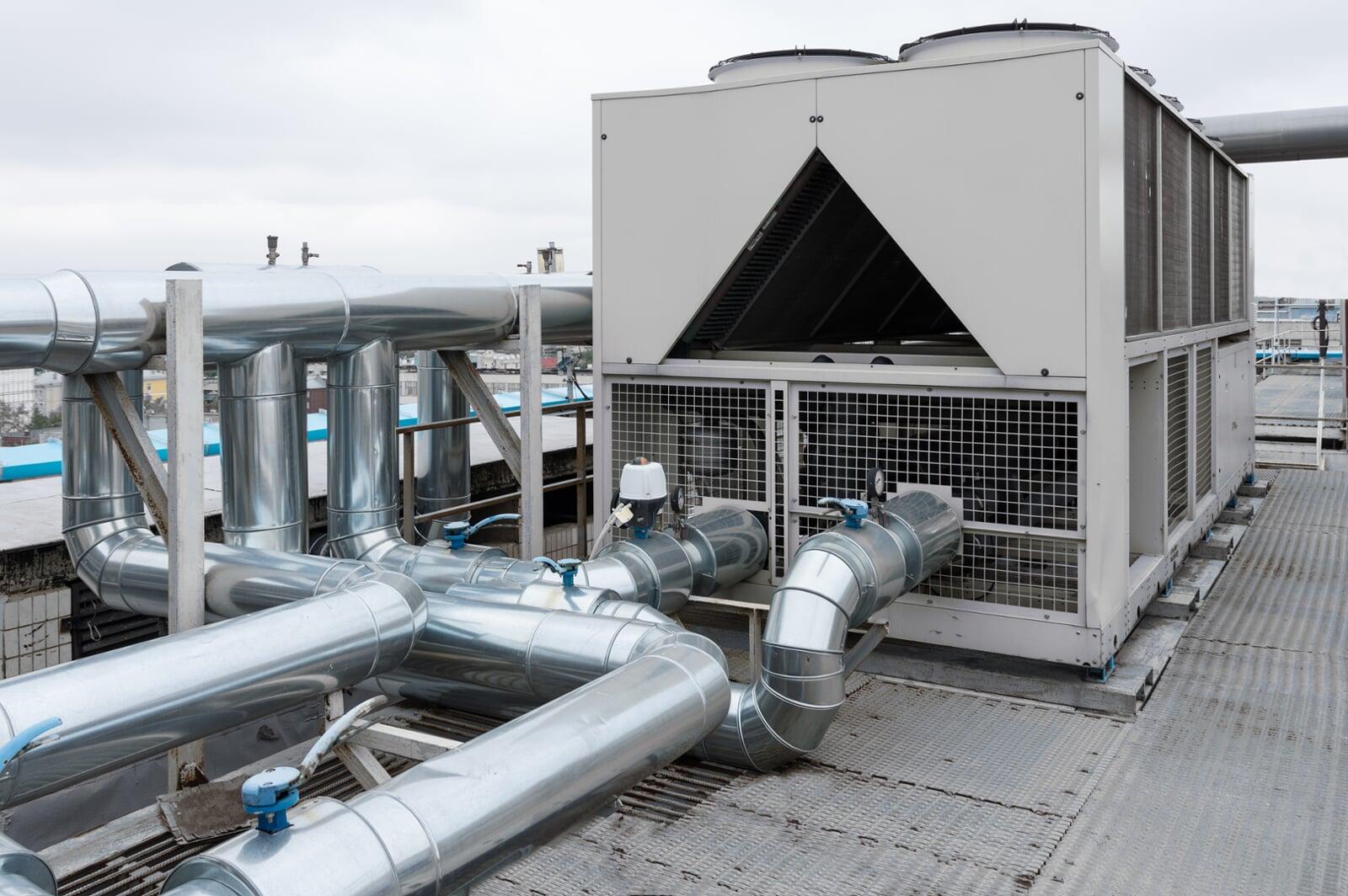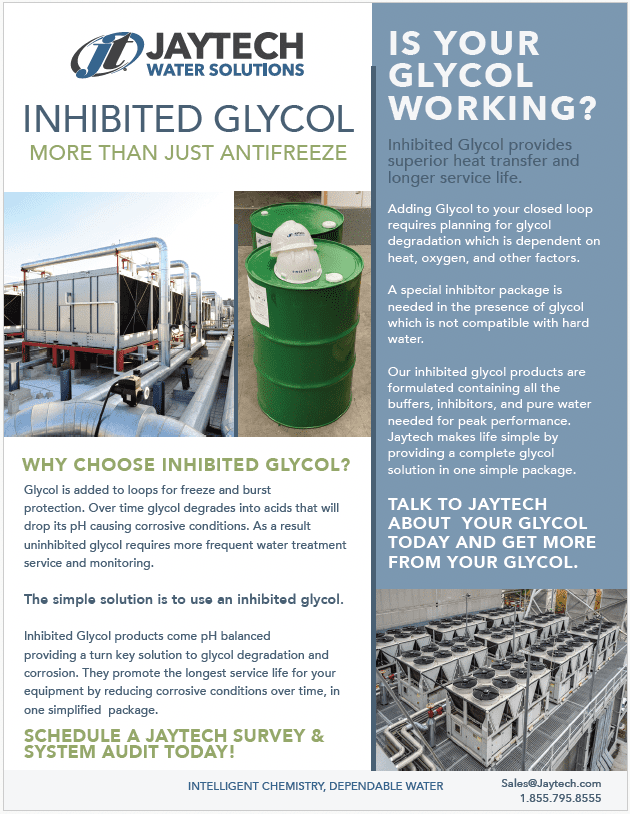Know Your Glycol: Propylene, Ethylene, & Inhibited.

What are the main functions of Glycol in Water Treatment?
Glycol works as an antifreeze in closed-loop hydronic systems by altering the freezing point and improving the fluid's ability to transfer heat. In hydronic systems which use water as a heat transfer fluid, glycol is added to the water to prevent it from freezing in cold temperatures.
Here's how glycol accomplishes this: pure water freezes at 32°F (0°C.) Glycol has a freezing point of -76°F (-60°C.) When glycol is added to water, it lowers the freezing point of the mixture. The extent to which the freezing point is depressed depends on the type and concentration of glycol used. Ethylene glycol and propylene glycol are the most employed glycols in hydronic systems. For example, a mixture of 50% ethylene glycol and 50% water has a freezing point that can be as low as -40°F (-40°C), providing excellent protection against freezing in most climates.
How do I know if I have the right Glycol in my system currently?
Manufacturers often specify the type of glycol that should be used in their hydronic systems. Always follow manufacturer recommendations to avoid warranty issues and ensure optimal performance. Your geographical location, water source, and climate play a significant role in determining the glycol concentration you need. Colder climates may require a higher glycol concentration to prevent freezing, while milder climates might need a lower concentration. A simple way to check if your glycol concentration is adequate for preventing freezing is to perform a freeze point test. This test involves cooling a sample of your glycol mixture to see at what temperature it starts to freeze. Ensure it remains well below the lowest expected system temperature. If you're unsure about the right glycol type or concentration, or if you have a unique system with specific requirements, it's advisable to consult with a hydronic system expert or a professional right here at Jaytech.
Talk With an Expert at Jaytech to Schedule A Jaytech Survey & System Audit Today!

How does Glycol work?
Glycol’s main function in heat transfer systems is to provide freeze and burst protection during periods of cold weather. Glycol, whether ethylene or propylene, has a higher viscosity and density compared to water. This makes it more work to pump through a system and also reduces heat transfer efficiency compared to water alone.
Does adding Glycol affect my water treatment?
Very much yes! Water is corrosive to metal components and requires inhibitors for each type of metal present. Adding glycol to water slightly increases corrosivity, but the big difference is that glycol degrades to acids over time. Too much acid accumulation will drastically reduce the pH of the water causing severely corrosive conditions. While any corrosion inhibitor used in water will also work in glycol solutions, special consideration must be given to buffer glycol solutions against this acid accumulation. Therefore, a specialty inhibitor package is recommended in glycol solutions that differ from water-only treatments. It is often best when utilizing glycol to purchase a pre-inhibited product that is diluted with DI water for best performance. Your Jaytech expert knows exactly which glycol product is best for your system.
Is there an alternative to Glycol?
Yes, some states still allow methanol or ethanol to be used as a heat transfer fluid in systems where freeze and burst protection is necessary. These alcohols are volatile, flammable, have low flashpoints and a distinct odor. As a result of these and other considerations, they are infrequently used in HVAC systems.
Is Glycol Net Zero friendly?
Glycol sacrifices heat transfer efficiency in order to gain freeze and burst protection. Glycols are historically derived from petroleum and natural gas products. More recently, glycol manufacturers have developed a process where glycol is derived from corn-based glycerin. This new source of glycol is the exact same product with the same specifications but is from a renewable source. Jaytech sells glycol derived from both sources based on your requirements.

Send Us A Sample of Your Glycol Fluid for a Full Analytical Report:


